This past break, I’ve found myself experiencing something I hadn’t had much connection to during the school year: joy. This joy came about when I decided to begin a season of Survivor (season 6 if you’re wondering). This season featured a twist, however, in that the two teams competing were separated by gender, and it became known as “the battle of the sexes” season.
Now, there are probably many other shows that also feature competition between men and women, but very few that I’ve seen have managed to provide such compelling insight into this discussion.
As I’m sure many other high school students (specifically juniors) would agree, this past year has felt like the dark ages. These days, it feels as though nearly every aspect of my life is centered around appearing like the perfect college applicant; whether that’s being well-rounded, well-versed, or well-liked.
I know for me personally, almost every day out of the week I fall asleep feeling anxious about the next assignment due, or how well I actually understand a newly covered topic, and then wake up the next morning feeling that exact same level of anxiety, if not worse.
However, I believe there is one unstoppable force to be reckoned with, that could allow students to find ways to incorporate joy into their lives on a daily basis. What is this exactly? It’s TV. I believe that watching TV is an important practice for teenagers, and here’s why.
While it can at times feel a bit overwhelming to log onto your Netflix account and see that there are about a thousand different new shows and movies all at once, this is an instance where making the wrong choice will not have dire consequences for our futures (hopefully).
It’s worthwhile, getting to watch and engage in this form of media that stretches my understanding of society and what it means to be human. There’s almost this sense of passive learning when watching shows like this on TV, that provides a birds-eye view of some of the most complicated human dilemmas and pulls one into a deeper analysis of the story being presented.
In addition to allowing individuals the freedom to make choices, television also paves a path for possible connections between others and a general increase in social understanding. Positive social interaction is incredibly important for the well-being of teens, especially in light of (no longer) recent events regarding the pandemic.
We often talk about the loss of learning that occurred during this time, but what about the loss of adolescence? Having connections with others and learning how to navigate those connections is just as necessary for our development as preparing kids academically.
Shows like Percy Jackson, HeartBreak High, or even Game of Thrones have provided much-needed sources of entertainment, but also have generated newfound relationships between individuals, who may not have ever engaged otherwise. There’s much more room to have active and engaging conversations when there is that mutual interest in further pursuing topics related to television.
Some of my favorite conversations with friends have been about analyzing the impact and messages of shows like Daria and Sex Education, which often explore themes and crucial life lessons relevant to our own lives as young individuals.
Much like arguments for reading fiction novels, learning about the lives and identities of others through television teaches kids to find empathy in experiences that don’t necessarily reflect their own. This is an important skill for upcoming generations to have if we ever want to move towards a more functional and accepting society.
While many may argue that increased exposure to technology is not the solution to promoting a healthier well-being for teenagers, there is a clear distinction between intentional media consumption and using media as a crutch.
According to the Pew Research Center, over 96% of teens feel that depression and anxiety are problematic factors that contribute to their overall livelihood. Teens and young people are currently in a dire situation, where stress induced by increased societal pressure has taken a toll on our physical and mental well-being.
Apps like TikTok, Instagram, and Twitter often promote the effects of stress, depression, and anxiety. We have begun to see how the effects of extreme and unlimited access to information are objectively harmful to the average teenage psyche.
Now you may be asking ‘How does social media relate to TV?’, and to that, I say: it does not. However, the negative effects of social media misuse are often roped into general conversations about media consumption and are used in arguments against all forms of media consumption.
These apps are prone to promoting a false sense of choice for their users in order to encourage increased interaction with said website, and therefore generate more money for major business owners.
However, I think there is a key factor missing from these discussions, that is common in all types of addictive sources. Have we considered why teens flock to social media apps during times of stress, even though we know they negatively impact our mood? Clearly, teenagers are unhappy.
Unfortunately, many adults believe that social media and technology are the main contributors to the major amounts of stress in our lives.
In an article published by developmentalscience.com titled “ Our Teens Are More Stressed Than Ever: Why, and What Can You Do About It?”, they stated that“heavy social media use may be a sign for concern…but [mainly] because it may be a symptom pointing to underlying distress”.
Excessive use of media is a strong contributor to the decrease in our overall mood, but this stems from a deeply rooted need to escape from an increasingly dysfunctional society. Issues such as gun violence, school safety, and the overall political landscape at this moment are just some examples of the myriad of life-altering factors beyond the reach of our control. What we can control, however, is how we choose to seek out joy in our lives.
There are very few outlets that truly provide teenagers with a solid understanding of what it means to build up confidence and understanding of our own selves. The freedom associated with being able to choose a post-school day show is just one example of how kids can gain comfort in our ability to make our own decisions, based on our own internal beliefs and preferences.
Over this year, I’ve had to learn a lot of hard truths, with the main one being: in any case, work smarter, not harder. During the first semester, I was just pushing and pushing myself to give 100% to everything. I quickly learned that there’s just no need for that. I had to reevaluate what is actually important in my life, and what truly motivates me as a person.
Laughing, talking with friends and family about stupid things, and feeling empowered and inspired by my own ability to seek joy, motivates me. I think it’s easy to get roped into this false idea that productivity and efficiency are central to success, when in fact we all know that success can be defined in many ways.
Realistically though, true success is found through evaluating what is important to you, and purposefully seeking out ways to support these intentions. I know that TV may seem like this silly little thing, but I genuinely think there’s something greater that comes from engaging in this form of entertainment. This joy and discovery is something that can’t be taught in a classroom or textbook.


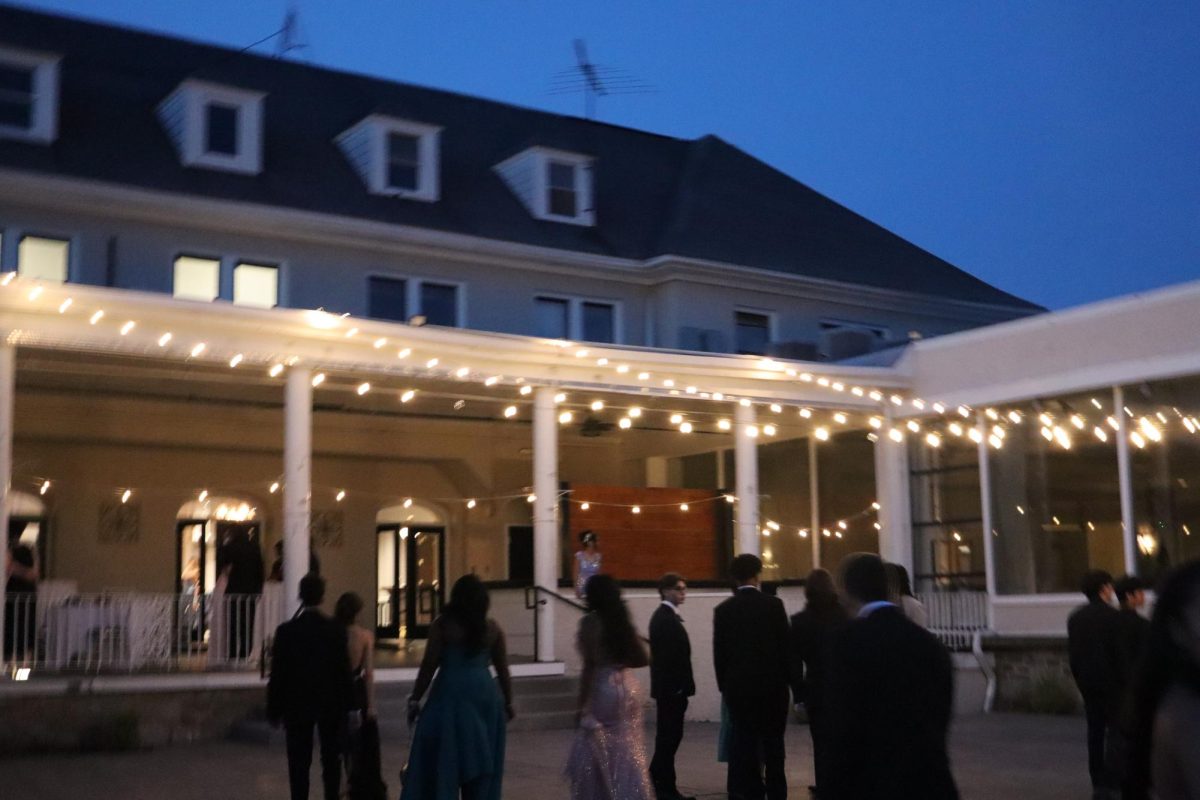

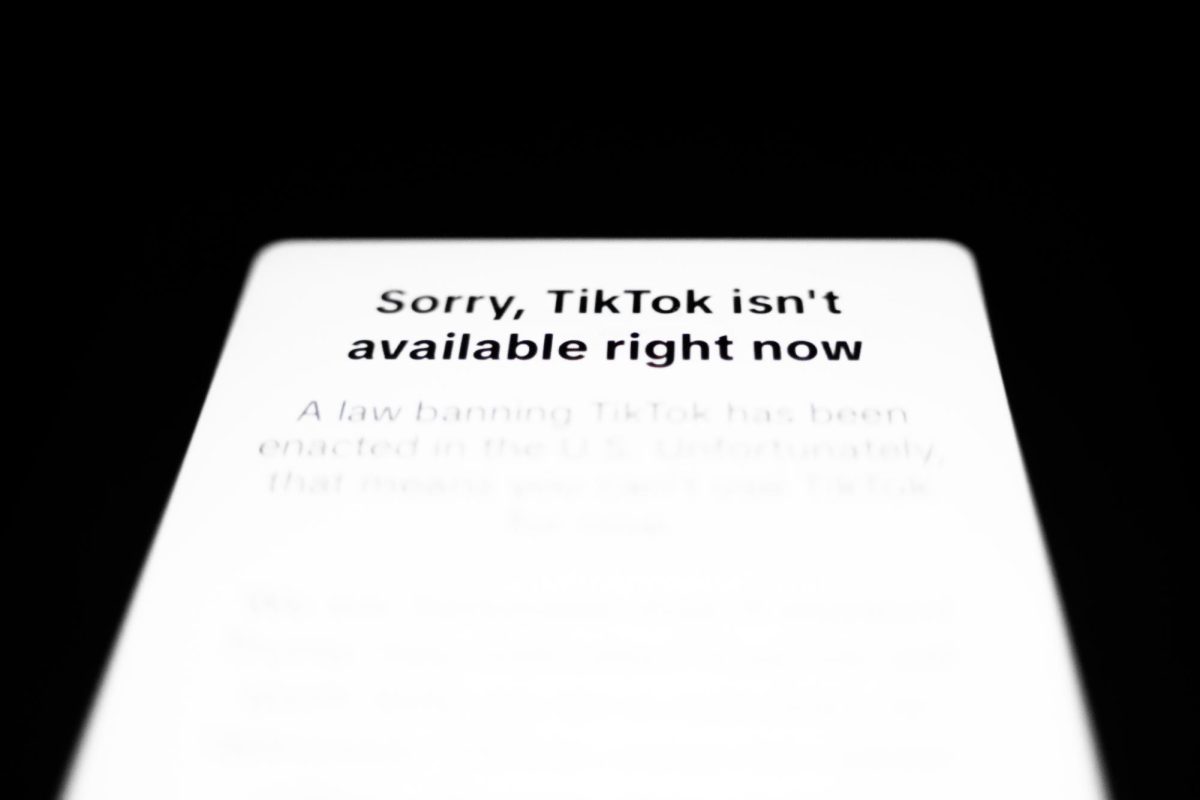

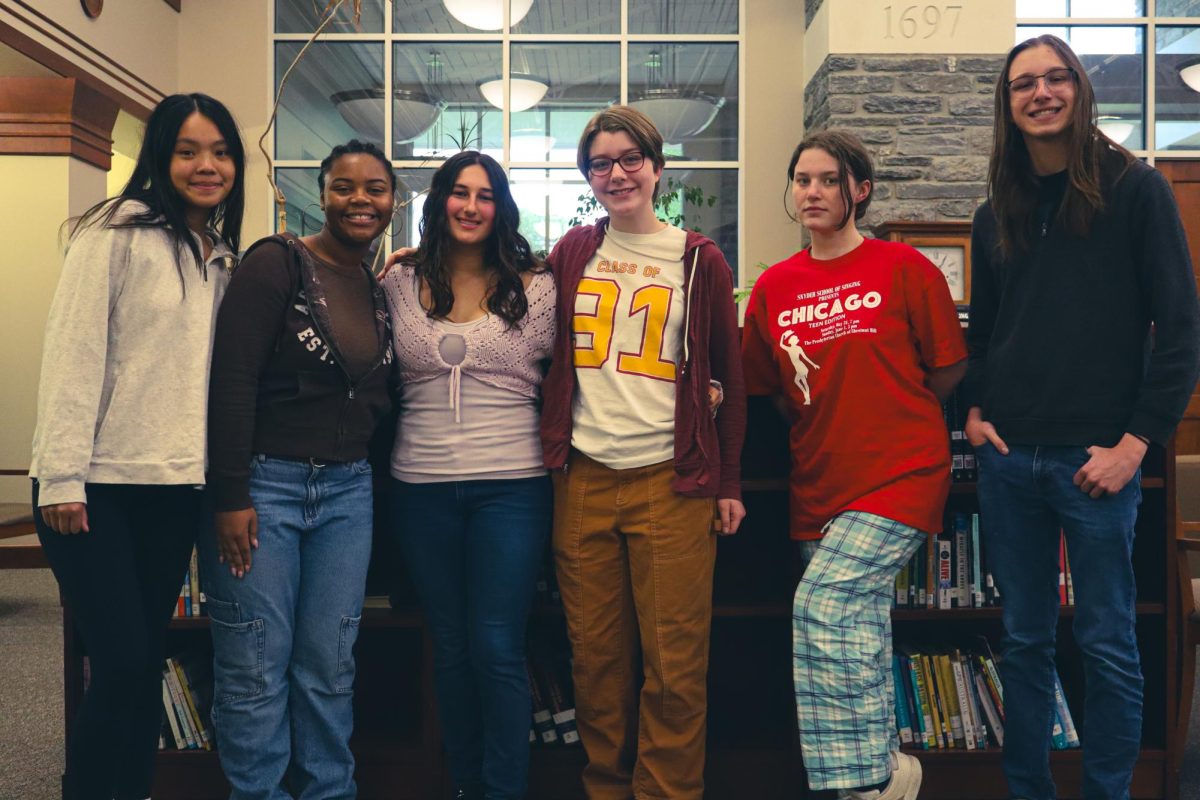


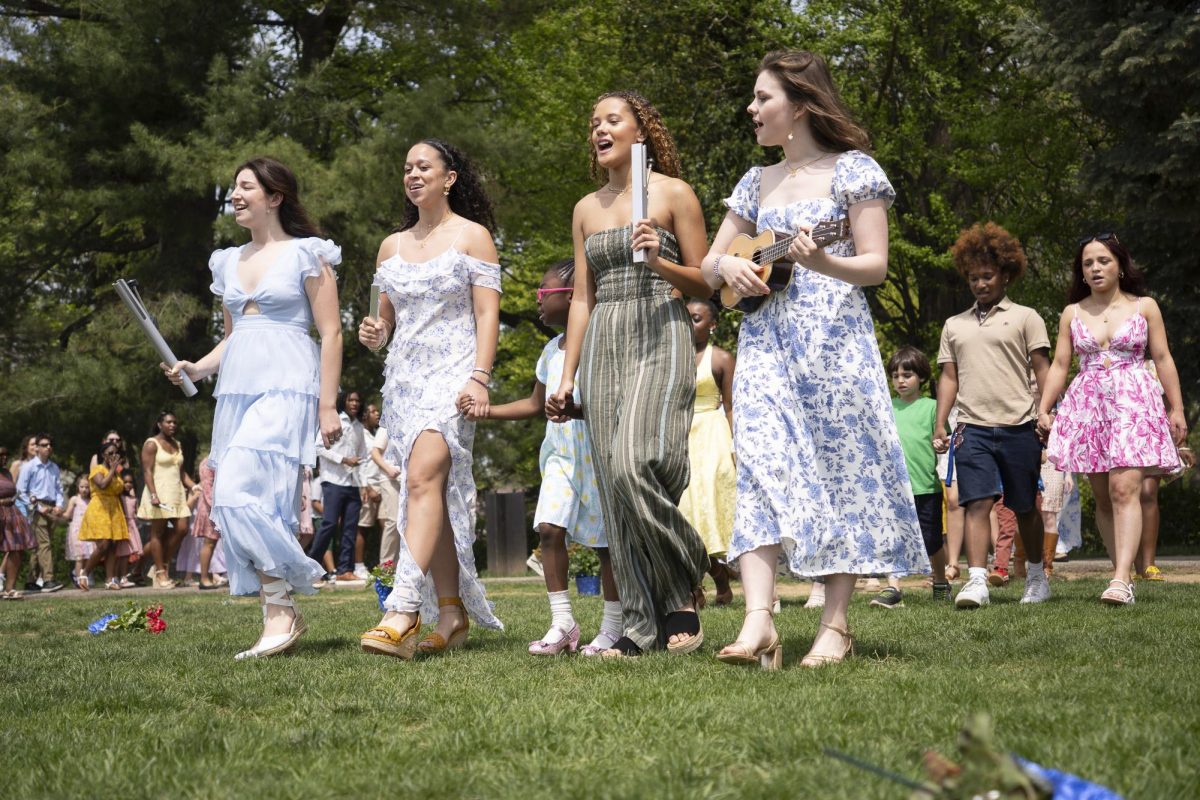

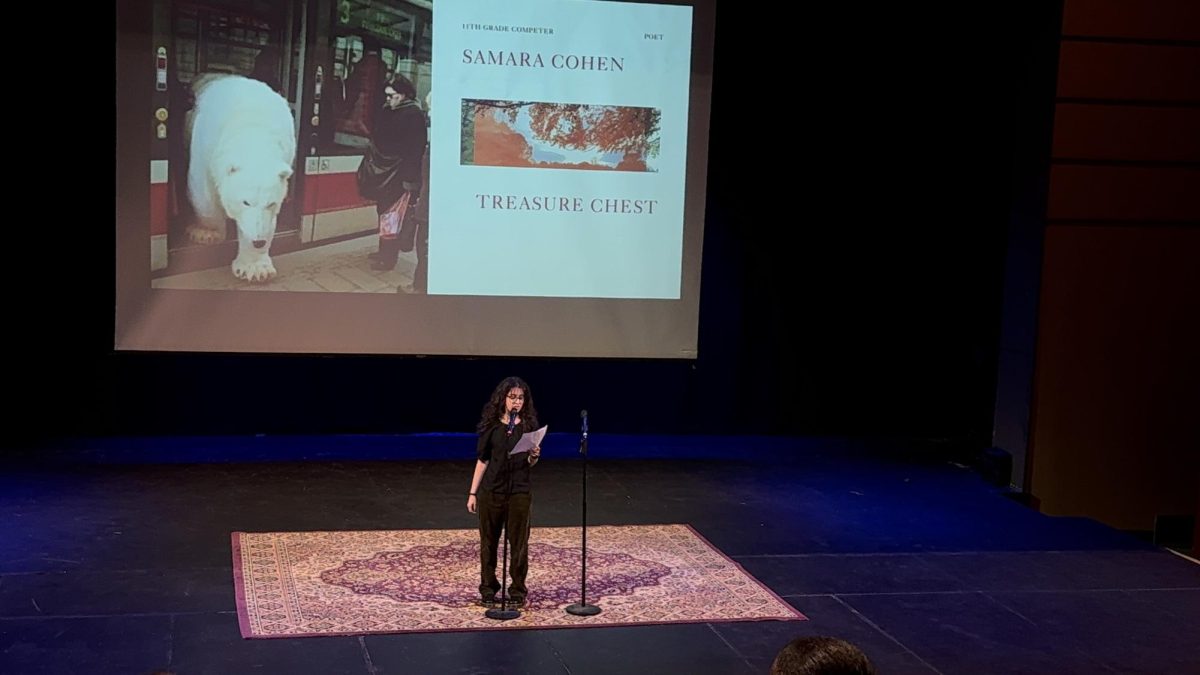
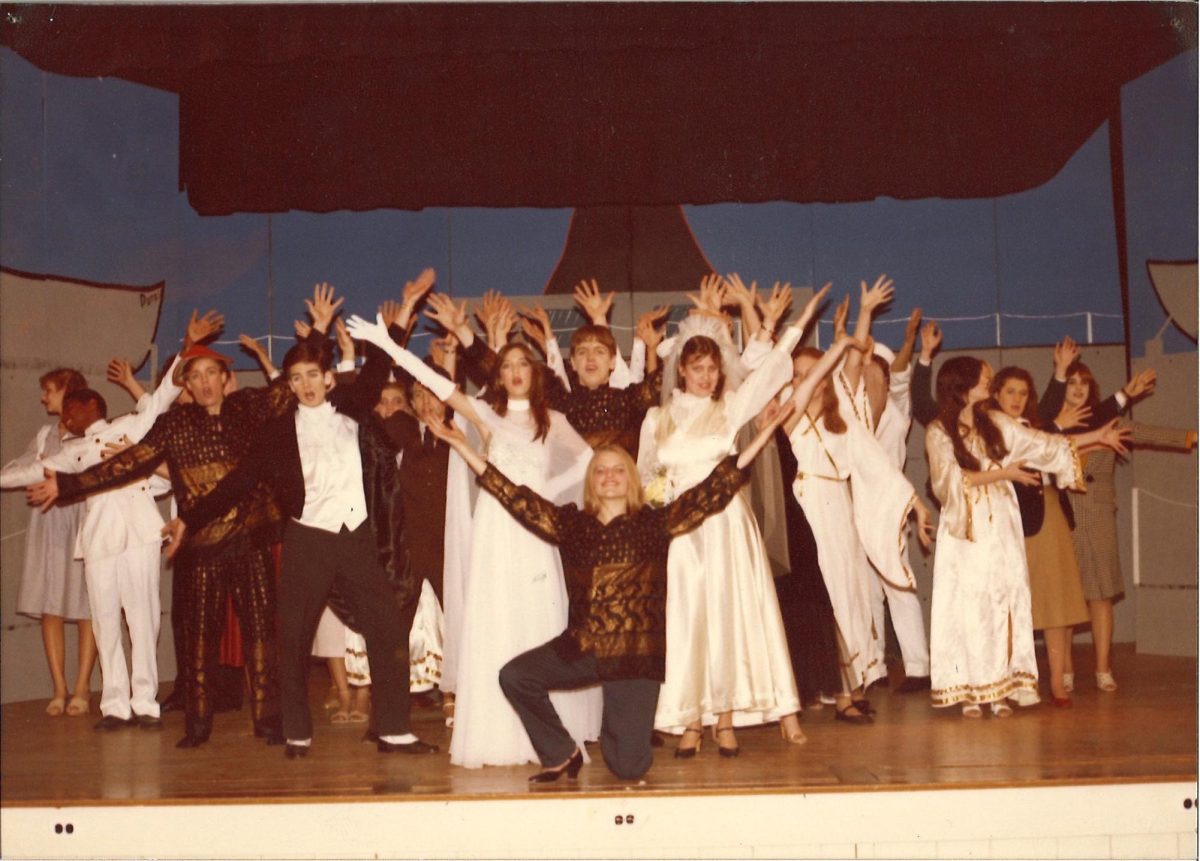


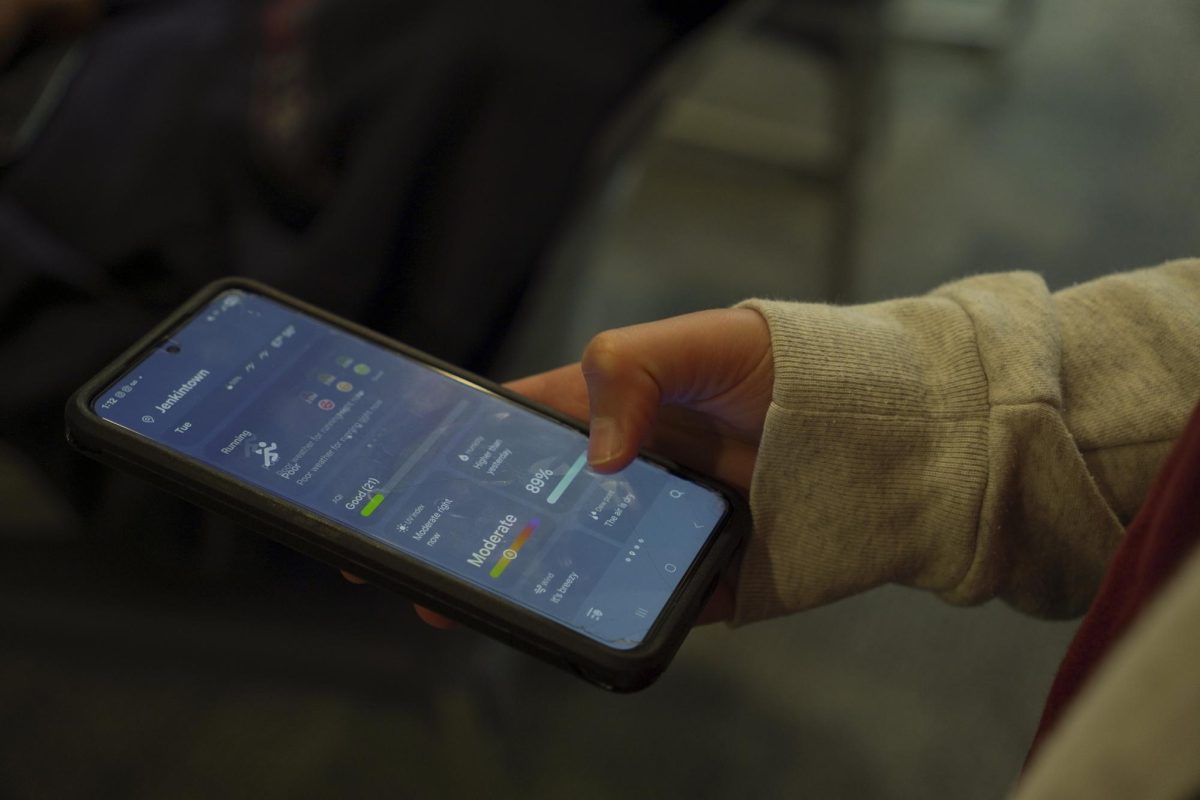
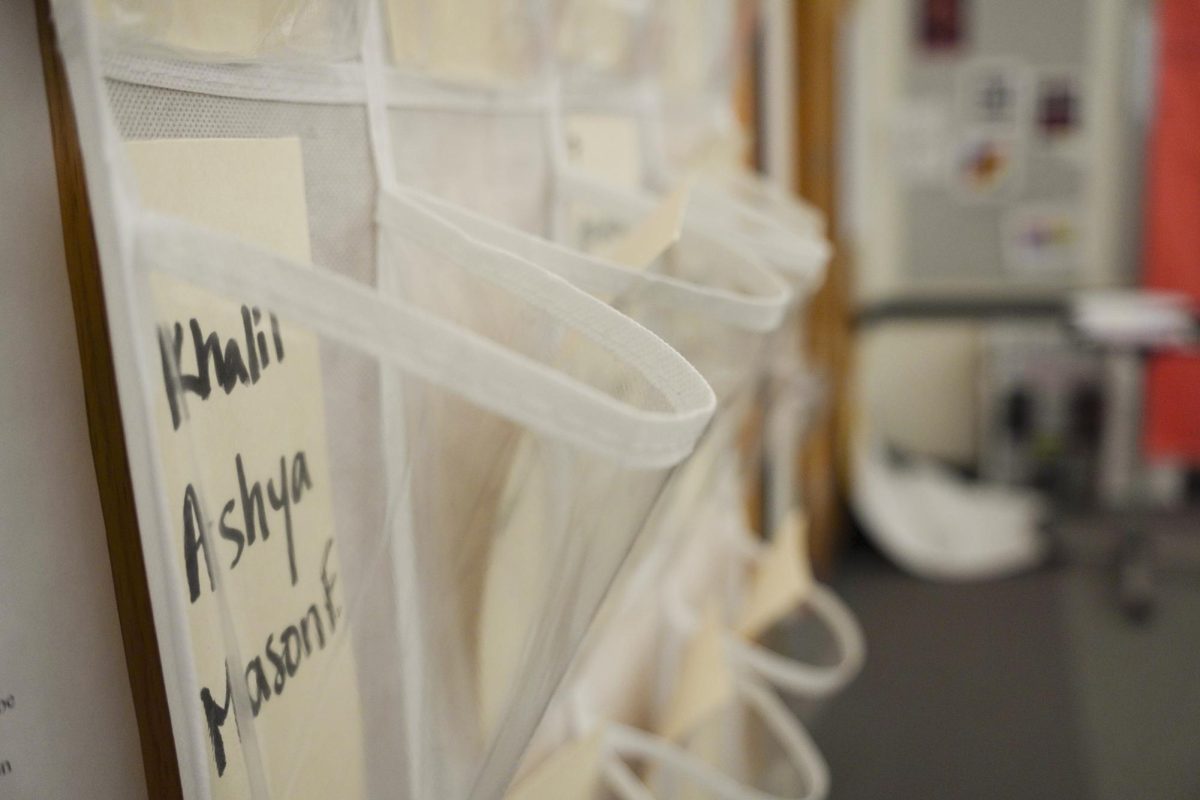
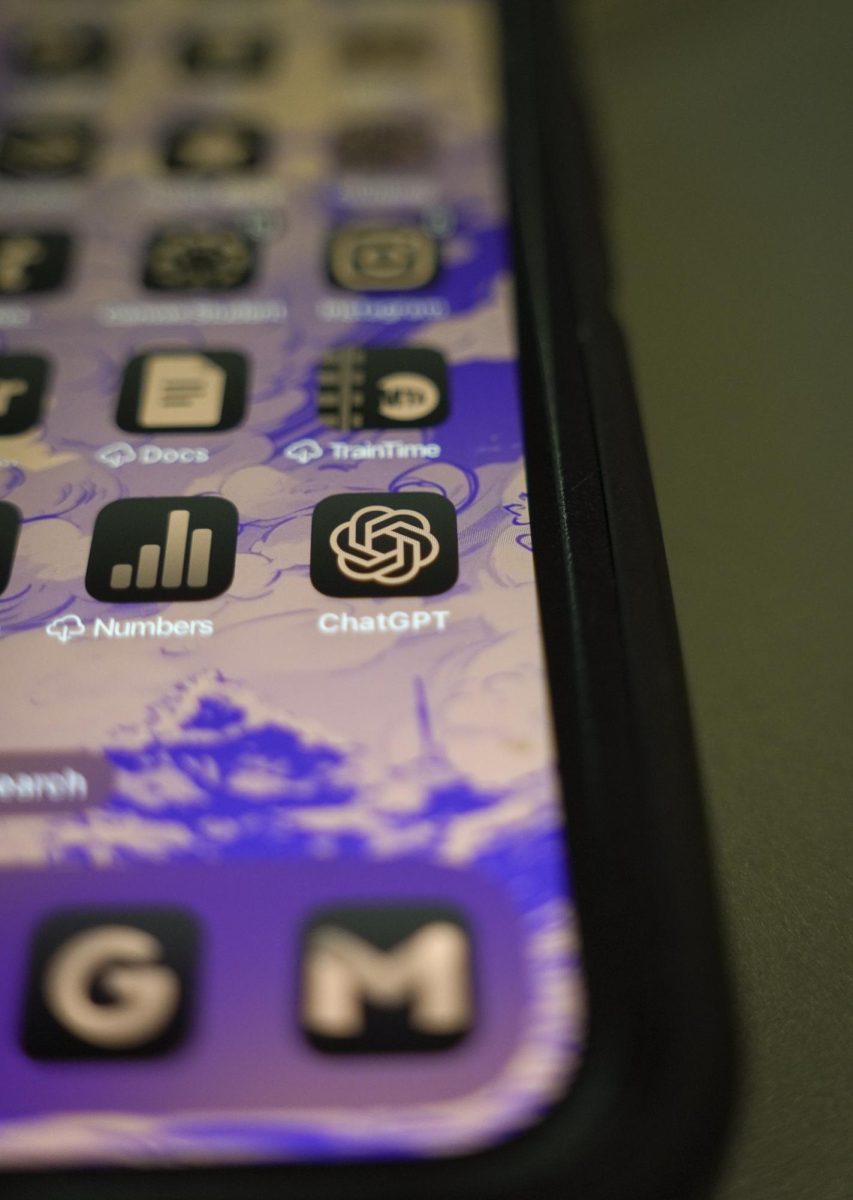
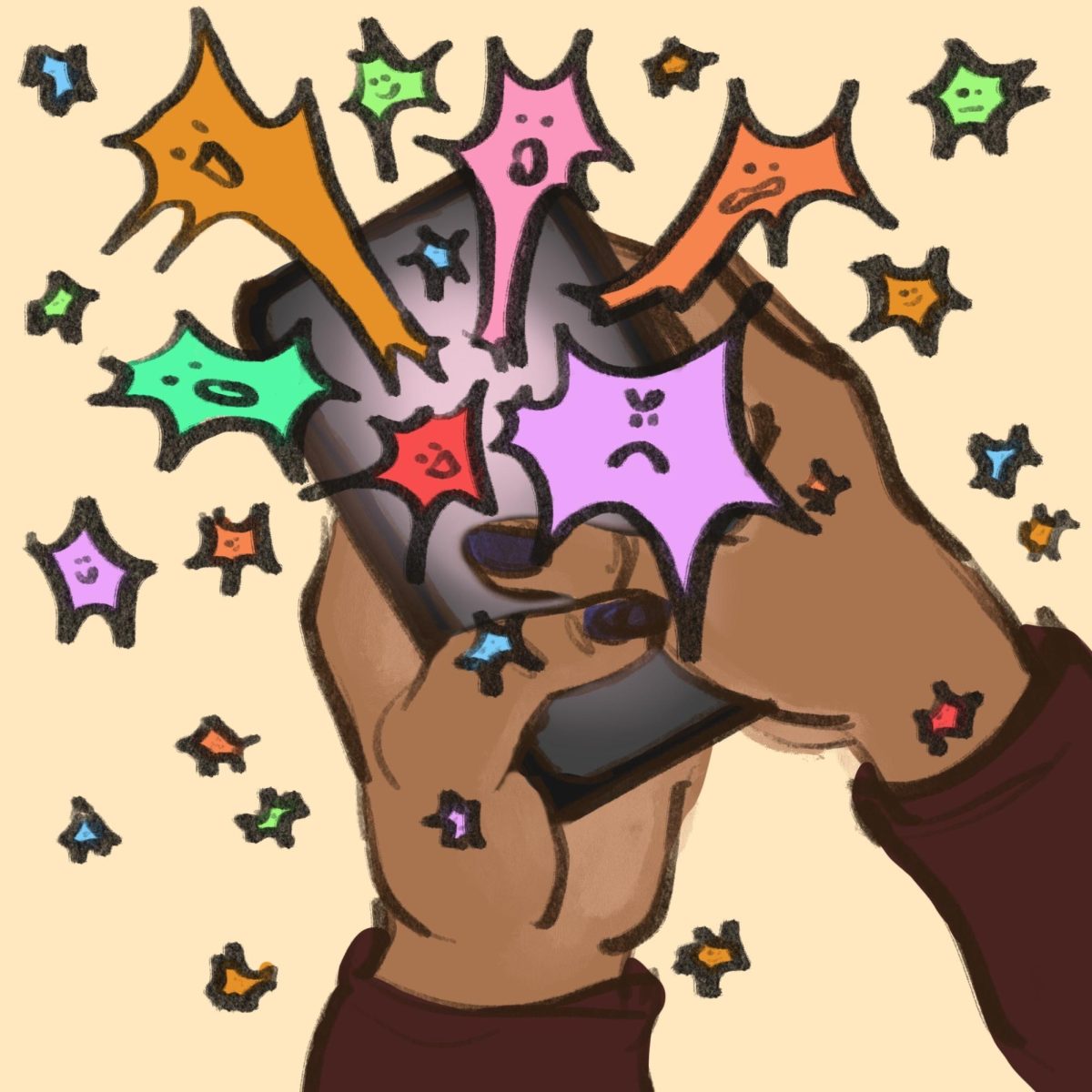

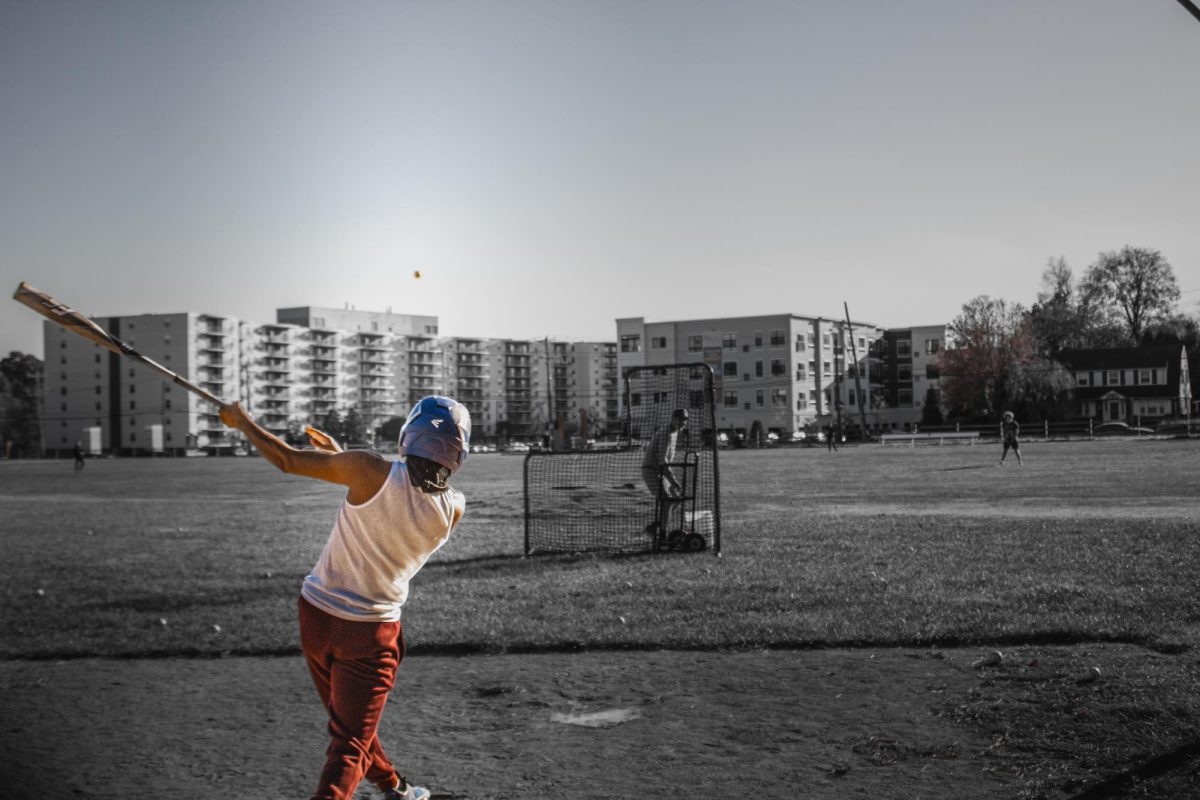
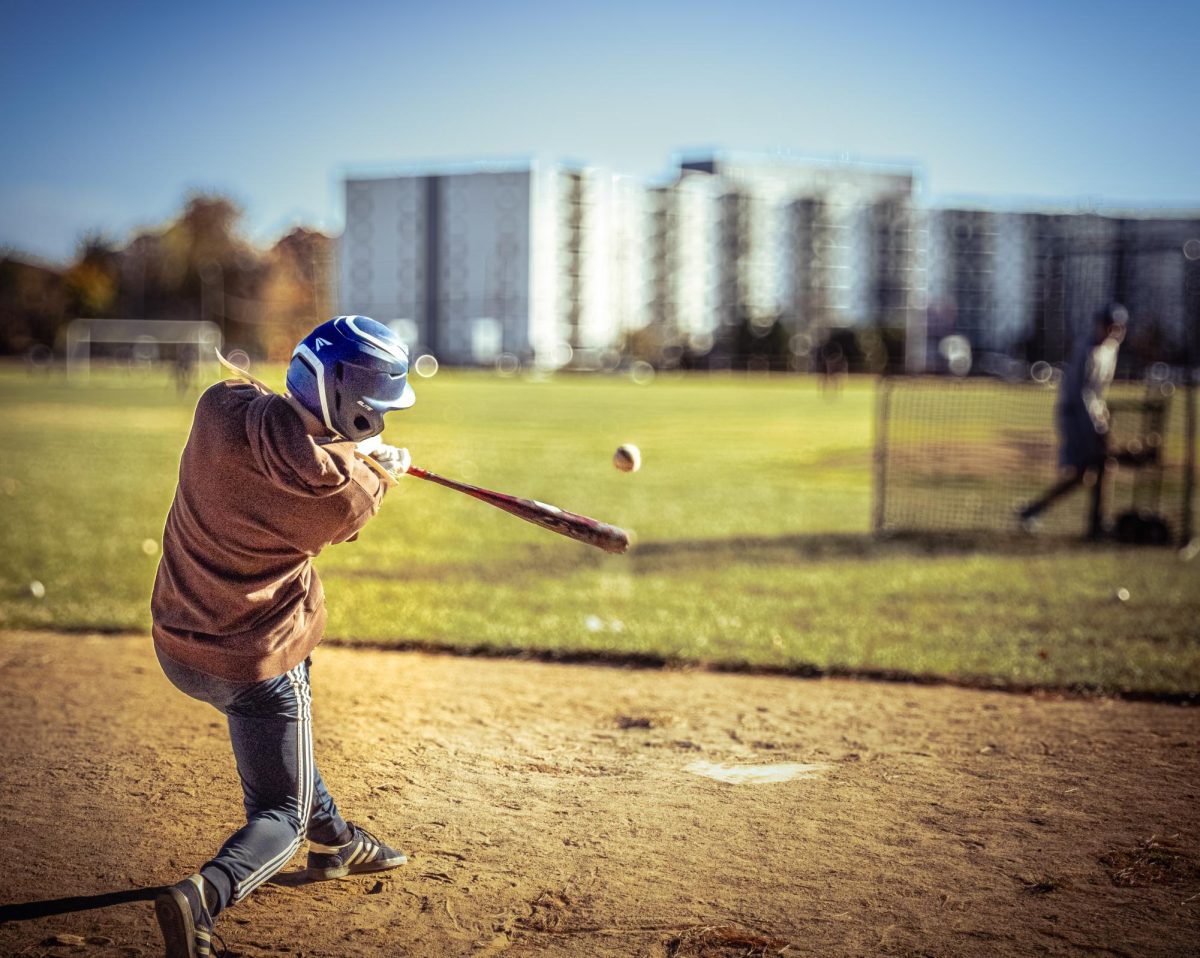


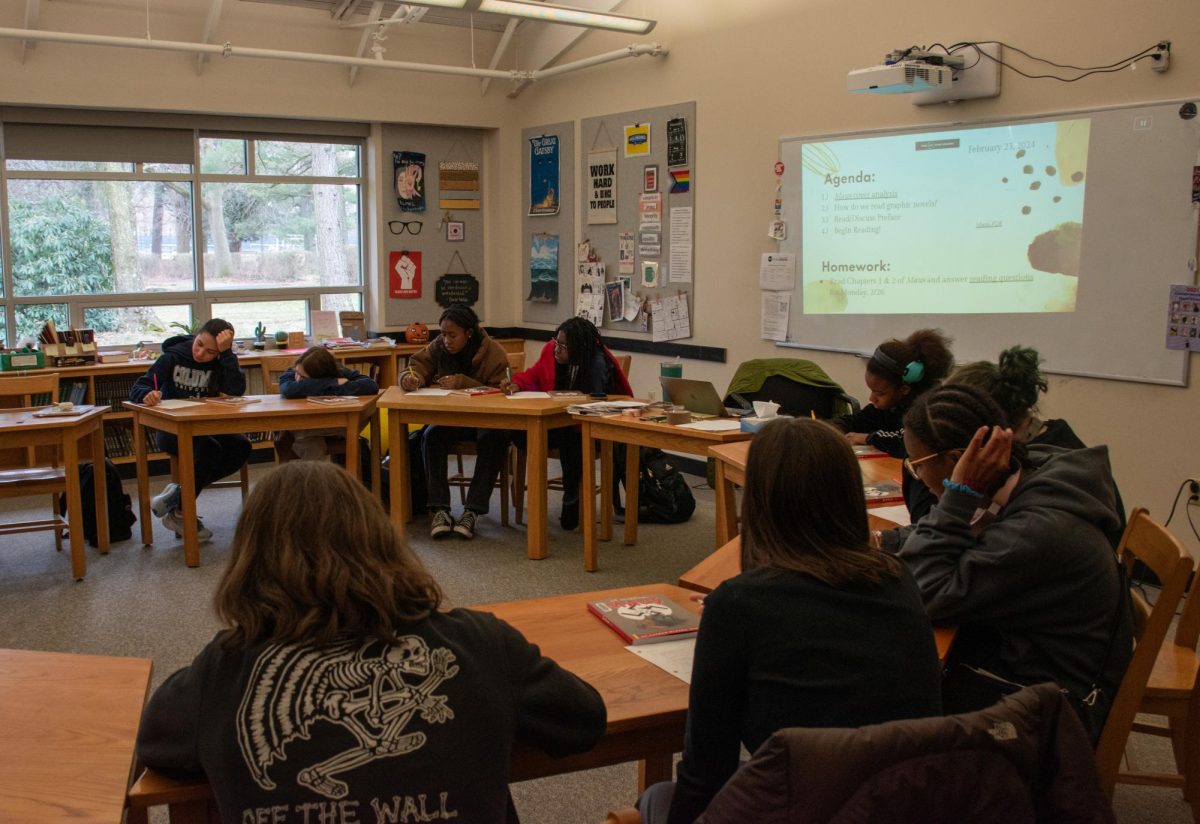


Matthew • May 23, 2024 at 7:53 am
I think this is a great end of year message. With a lot of students stressing about end of year work and getting everything done in time it can be hard to let go for a minute and find joy. Finding those moments to connect with friends is such a relieving feeling, even if after words you may have regrets, and is the best kind of motivation. I am going to hangout with friends all weekend and that has given me 20 times the motivation to finish my work so I don’t have to cancel. Of course there is another stress from this, but overall the experience will be a net positive. To anyone reading this I encourage everyone to find at least 1 thing that will bring joy during the ending weeks, whether it be tv or hanging out with friends or even just a special dessert of some kind.
Amani Shakur • May 15, 2024 at 9:04 am
I agree with the author and believe that TV can be good for you. I think it can be good for teens because it is a helpful distraction, from school that is better than social media. I enjoy watching “This is Us” “Abbott Elementary” and “Insatiable”. TV shows and movies can be good for relating to peers. They can build connections because it is fun to relate to someone and talk about your favorite TV show. TV is a great way to relieve stress and calm your mind after a long week of school. I like to use TV as a reward when I complete my homework assignments or when I get to the end of a school week. I do this instead of watching it every day so that I can still focus on scool, and not use it to avoid work. I agree with the way the author distinguishes between TV and social media. I also use social media as a distraction, but I think it has more negative effects and can be more addicting. Using social media too much can lead to more negative effects, but when I watch TV, I usually feel happy and excited.
Julia Ma • May 13, 2024 at 1:09 pm
I agree with this article. A good movie or show is like a good book and will bring benefits to us. I like watching TV very much (of course I don’t spend too much time watching TV). TV allows me to learn about many different lives. I can quickly understand the world through it. When I encounter the same thing, I Will know how to solve it. There is no good or bad thing in itself. The difference between good and bad depends on how we use it. If we just use playing games and watching TV as a pastime when we are stressed, it is completely beneficial to our physical and mental health. But if we are obsessed with it and can’t extricate ourselves, and even delay our life and study, then it becomes a harmful thing.
Christine • May 13, 2024 at 1:04 pm
I agree that TV is good for you when consumed intentionally. When I was younger I remember watching a large variety of TV shows and I would go to school and talk about them with my friends. At this time, most of the shows I watched were not intentional, I remember watching them just simply because I enjoyed them. But as I grow older, I think about the many shows I have watched and endlessly think of ways they apply to my daily life and I have realized many of the shows I’ve watched have helped me gain more insights on the world around me and build bridges between friends and family. I also think it is important to distinguish social media and TV. Social media can be helpful as well but it is so much easier to scroll for hours on end and I think it affects kids our ages’ mental health more than TV could.
will M • May 13, 2024 at 12:53 pm
agree with the Article because during a stressful time you have a a lot of things on your mind and you want to relax and binge a series or watch a movie. I watch the boondocks and it builds a connection to my piers that watch it. I agree but disagree because while having time to relieve stress that way it also can be distracting and cause procrastination.
Amaya Naté • May 13, 2024 at 11:11 am
The “Good Place” TV show has become my go-to background entertainment while tackling homework assignments. It’s like the cherry on top of my day. I’ve developed a genuine love for television; it’s a comforting escape and a source of joy in my life. Despite not having social media, I wholeheartedly believe that TV offers a more enriching and fulfilling experience. Providing meaningful content and stories that resonate deeply with me.
Sye • May 13, 2024 at 11:05 am
I agree with the opinion in this articular. As a person who’s parents restricted TV growing up I truly believe that isn’t beneficial to withhold all forms of media. I believe the problem comes with what content we are watching based on age and other factors. I do think that TV should be more regulated. TV is also not a new thing in our world movies have been around for a little while and we arent the first to watch TV. I also am a person who loves movies and seeks out cinematic rich films. It is an art form and it brings they same feelings of hearing a good story or reading a good book. Movies are a lens into an different life and new experiences.
Tiye • May 8, 2024 at 9:37 am
I agree with Jada’s perspective in the article because TV is a good way that I learn how other people from different walks of life live, it is also a good topic of discussion I have with my friends. I watch shows such as You and The Summer I Turned Pretty which both address issues that are relevant to learning about others and building good relationships as well as learning how other people live. When my friend group talks about The Summer I Turned Pretty, we have a lot of fun talking about Belly (the main character) and her relationships with her love interests Conrad and Jeremiah. We talk about who is a better choice for her as well as talking about how Belly has turned her two love interests against each other. By talking about this, we are discussing building healthy relationships and our take on how people can make their relationship work, not only romantically but also friendship wise as well. I agree that there is a difference between TV and social media because TV can teach you valuable lessons about yourself and your interactions with other people like inThe Summer I Turned Pretty whereas social media cannot teach you that because people on those apps can be so negative with each other. It is very common to find people arguing in the comments of any tiktok or instagram reel whereas not as many people would argue about TV shows.
Eli Belotserkovskiy • May 8, 2024 at 7:44 am
I agree that TV is actually good for letting your mind rest. 5 days a week for most of the year you are studying, doing homework, reading books, writing essays. And now days that isn’t enough to get into a good college. You have to do a bunch of extra curricular activities and you have to be good at them. There is a constant stress that every student feels. TV is a good tool to help distract yo from all of that. Sometime you just want to lay down and relax and get your mind off the future. TV is a great way to cool down and release all that exhaustion. Studies show that having a small break in-between work is way more beneficial then just working nonstop. You have to maintain a balance and make sure you don’t watch too much but if you avoid that it is a great thing.
Avila widestrom • May 8, 2024 at 7:29 am
In this article, they talk about how TV is beneficial because it is a good way for you to learn from other humans and escape life’s daily stress. I agree with this. They talk about how there are many stressors in teenagers’ lives. And most people connect those stressors to social media. While it might be because of these stressors, they’re outside lives and are on social media more often. I have recently enjoyed watching Disney Princess movies because I find them nostalgic. And I think that watching TV is more beneficial than social media. While it is just Doom scrolling and slowly shortening your attention span, movies are usually an hour and 30 minutes to 2 hours long, so they either lengthen or maintain a good attention span.
Nico • May 6, 2024 at 7:56 am
While I do agree with the idea that TV shows can help bolster conversations which may lead to stronger relationships, I would still caution people from spending too much time watching television.
Watching TV has many advantages such as being a good source of entertainment, it helps diversify your knowledge of cultures and religions, it can help unify families, and much else. However, I believe the downsides of TV outweigh the disadvantages.
TV has a very negative effect on health. Watching TV can increase muscle aches, back pains, and eye irritation. Watching TV can also promote a stationary lifestyle given that watching TV typically takes place in a sitting or slumped position.
TV can also harm the development of social skills. Watching TV at home takes away from time that could be spent outside and with peers. The activity of watching TV promotes a lifestyle of neglect since watching TV is an activity that can be done alone.
Rihanna W. • May 6, 2024 at 7:52 am
I agree with the perspective of this article. Reading this reminded me of when I used to watch TV so often as a kid with my siblings after we finished all of our homework. Before social media took over, I had a long attention span to watch endless Disney XD, Nickelodeon, Disney, Cartoon Network, and any other show that came on demand with my siblings. As a kid I wasn’t aware of how many of my peers were living the same life as me. I didn’t realize until I got to middle school and I was engaged in a debate about “what childhood show was the best on TV”. Listening to everyone’s responses and responding to theirs, I found myself happy that I could connect with my friends over little things like TV. I also remember as a kid how many hours my siblings, cousins, and I would stay up late making up conspiracy theories about all the shows on Disney XD and other mainstream TV shows. I don’t really give those small moments the attention they deserve anymore now that I’m older, but those are definitely memories that stick with me everywhere I go.
Lori Lei • May 6, 2024 at 7:51 am
I completely agree with everything the author had said. No matter the cause of the stress, it is important to find a way to relieve it. Personally I think watching a good tv show does the trick. Rather than watching comedy or relaxing shows, I tend to watch action or thriller shows. It may sound contradictory to stress-relief, but I find this form of entertainment a good way to “forget” about your current worries. I also believe that watching the same shows as others is a great way to build connections. It is fun to see how others may have interpreted the same scene differently. Lastly, I think the author brought up a good distinction between TV and social media. As with anything, I think both are beneficial in moderate amounts, but both could escalate unhealthily if used for the wrong reasons. The main difference is that TV shows can be a more independent activity while social media is more interpersonal. Because of this, social media happens to have a higher change of increased stress.
Jaydon • May 6, 2024 at 7:48 am
I agree with the arguments that are presented in this article, and I think that they hold a bit of truth to them. I have recently gotten back into watching TV as I have just finished Breaking Bad and have just started Jujutsu Kaisen. And with the NBA playoffs in full swing, it feels like my day is full of entertainment of my choosing. And just like the article suggests, watching these shows and getting invested has gotten me into a better mood and they give me the energy to get through my day. And for some reason, they also give me a sense of confidence that I didn’t have without them, maybe that feeling stems from the fact that I genuinely enjoy something and it makes me feel more human. And, as the article suggests, it doenst seem like a great idea to improve teenage mental health by having them consume more media, I believe that it can have a genuinely positive effect.
Aly • May 6, 2024 at 7:43 am
I agree with the statement of the article about how television is actually really good for entertainment for young people. Most conversations I make with people are based on popular television shows or movies because it is a really easy topic to talk about for long periods of time. I am also a fan of Survivor and it is, to me, a really good source of entertainment that isn’t just mindless television. I feel like the less television one watches the less they will be able to contribute to some conversations. Personally, there have definitely been conversations that I have felt left out of or was not able to incorporate myself into because I had not watched the show or movie. I honestly think watching TV is much better than just mindlessly scrolling because many shows and movies actually tell stories and give people important lessons that they might not have learned without them.